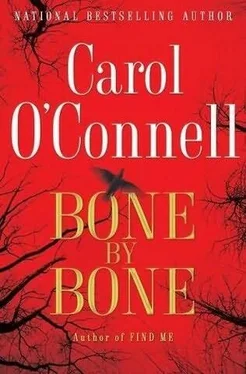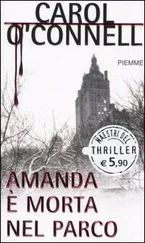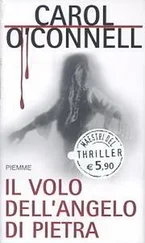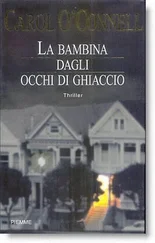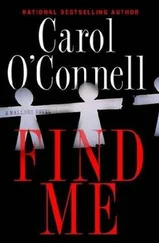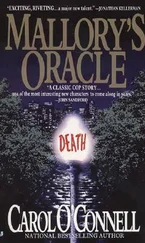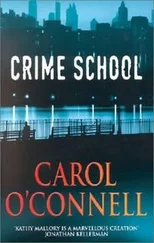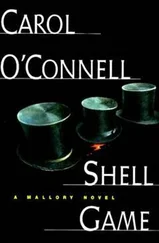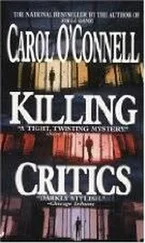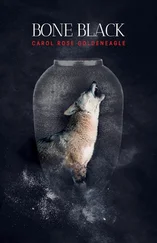Oren was hardly paying attention anymore. He was doing the math on Mrs. Winston's long-ago estrangements from Swahn and the librarian.
Mrs. Hardy flipped backward through the pages, then stopped and stabbed the heart of a drawing with one finger. "Here," she said. "The dead lark seems to mark the beginning of the change in Sarah."
When Dave Hardy entered Peck's Roadhouse, a cluster of patrons was gathered at one end of the bar and watching another repeat of the news. The volume was loud. One more time, he saw the film of Sally Polk and the reporters. This version was cut to make it look like a formal press conference-more like Polk's own idea instead of a media ambush.
The voice of a studio guest rode over the action on film, and this celebrity author profiled a child killer for the viewing audience. The bones of the female victim were never mentioned. Dave supposed a young boy made a more sensational story.
The camera cut to a photograph of Josh Hobbs as he was in life, that silly grin. The guest author was also smiling. "As you can see," he said to the anchorman, "Joshua was delicate-almost pretty, if you get my meaning. I believe he attracted a predator who couldn't handle a boy with more muscle."
The anchorman was professionally livid. "So we can't rule out a pedophile who might be handicapped in some way."
And the next shot was predictable, the old clip of Swahn, branded by innuendo and editing, limping past Highway Patrol cars in the Saulburg parking lot. Sally Polk's voice could be heard riding over the film, saying, "-a person of interest." This was followed by the rerun of reporters in a frenzy as they surrounded the man, and Sally Polk's voice was once again clipped off to say, "-a person of interest."
Dave Hardy had grown to loathe that woman.
The volume of the TV set was turned up, the better to hear the questions shouted out from the crowd of reporters. "Does Swahn have a criminal record? Does he like little boys? He's a homosexual, isn't he?" But the only sound bite from Sally Polk was, "No, he didn't take a lie detector test. Cut from this new version was her statement that Swahn had never been asked to take a polygraph exam.
The current image was a studio shot that Dave had not seen in the earlier viewing. A psychiatrist was pointing out that the overwhelming number of pedophiles were heterosexual. And furthermore-
No one in the bar could hear the rest. Riding over the voice of reason, a chorus of voices shouted obscenities. A beer bottle hit the television screen.
The bartender, a man of many tattoos and a short temper, reached under the bar and pulled out a shotgun, yelling words to the effect that the unruly patrons should take their business down the road-or die.
In keeping with the judge's instructions, Mrs. Winston's birder journals had been left behind on the library shelves, where they would be safe from Sally Polk's warrants.
Hannah started up the car. "If you give Mavis some time with those books, she might be able to tell you more about this town than you wanted to know."
"I'd like to know why she kept her relationship with Mrs. Winston a secret." The librarian had not been willing or able to tell him. "Swahn went to dinner at the Winston lodge-but not Mrs. Hardy."
"Oren, I think you can figure that one out. You've spent enough time with Addison." She steered the car away from the curb. "Maybe Sarah and Mavis had something in common besides birds."
"You think Ad Winston beats his wife?"
"No, that's not it." Hannah craned her neck to see over the wheel. "You should come to the birthday ball this year. You'll never see a man more in love with his wife. But he's a controlling bastard, isn't he? I'm guessing Sarah's only contact with Mr. Swahn was at the dinner table-with Addison. He might not want her to have a friend that she could talk to alone." She turned a wide smile on her passenger. "Do you still shoot pool like a hustler?"
"I do," he said. "And do you still hustle the tourists?"
"I get my fun where I can." When they reached the edge of town, she decided on the mountain route, arguing that the coast highway was too tame. "And away we go."
The old Mercedes was not an automobile to Hannah; it was an amusement ride. Up and down they went, around and around, and at one point he believed that she could make it fly Oren averted his eyes from the speedometer, though he knew the needle would never reach forty miles an hour. This road was treacherous at thirty, and every curve that blinded them to oncoming cars was an opportunity to crash and die.
After passing through two towns, then traveling awhile on a stretch of unpaved road with no helpful signs, they pulled into the crowded parking lot of the Endless Bar, a saloon that could not be found unless one knew the way.
Inside the establishment, nothing had changed. The music was loud and country, and this same song might have played on the jukebox when Oren was too young to legally walk through the door. Most of the patrons were corralled inside a revolving circular bar. It was rumored that some of the regulars never left; blind drunk, they could not find the hinge to the outer rim, where a patron could lift up a plank and escape. When people went missing for days and days, this was the first place their loved ones looked for them. The unloved were remembered on the hall-of-fame plaque for those who had died on their barstools. It was positioned well above the line of sight to avoid the problem of a cautionary tale for paying customers.
Oren and Hannah walked past the bar, heading for the pool tables in the back. The little woman nodded and waved to acknowledge hellos from large, hairy bruisers, who no doubt belonged to the gang of motorcycles in the parking lot. How they smiled to see her coming. It was easy enough to read those wide grins, the shake of heads, saying, No, not this time, old lady. You ain't gettin my money-not another dollar.
Every table had been booked. Not a problem. Two men gave up their game so that Hannah could play, and they nodded to Oren with something approaching condolence, taking him for one of her patsies.
The tiny woman was on her toes and grinning when she leaned over the
table to rack up the balls in triangular formation. "Let's make this interesting." She aimed the tip of her stick at the white ball and sent it slamming into the tight cluster. Balls of stripes and solid colors spread out on the green felt, slow-rolling along in their separate directions. "Loser buys the first round."
"Deal." Oren was a happy man. The last ball had come to a stop, and Hannah had failed to sink any of them into the pockets. He owned a spread of easy shots.
"One condition," she said. "We're not playing eight ball. You have to run the whole table in one turn with one hand behind your back."
"Nothing easier." He would not even need a brace to steady his stick. Every shot was a gimme, and a half-bright child could not lose. It reminded him of his very first pool game. It was almost as though she had set up the table this way. Later, this thought would cross his mind again. But now, with no suspicion at all, he lined up the first shot and took aim.
Before he could follow through, Hannah leaned in and touched his arm, saying, "The stick will shake."
"Yeah, right," he said. "Nice try." Smile widening, he completed his shot-and-he- missed -it.
"In case you're wondering," said Hannah, nonchalantly chalking up her pool cue in preparation for clearing the table. "That shaky stick? That trick's got a real fancy name. It's called the ideomotor effect."
Click. A striped ball dropped into a corner pocket.
"I wasn't talking to you when I made your stick shake," she said. "I bypassed your brain."
Click, click. Two balls in the corner pocket.
Читать дальше
